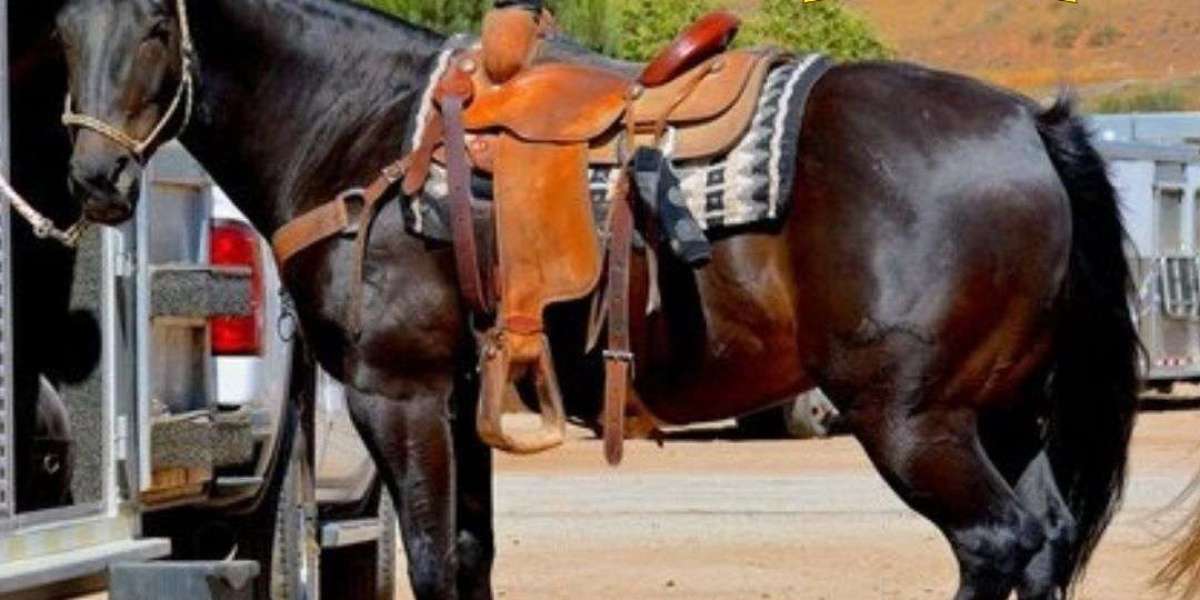Transporting horses safely and comfortably is a responsibility that requires knowledge, care, and specialized resources. Horses are not just animals; they are companions, athletes, and valuable partners in work and recreation. Their size, temperament, and sensitivity make moving them far more complex than transporting household pets. Every trip, whether short or long, must prioritize the animal’s well-being. This is where professional equine transportation becomes essential.
Why Specialized Transport Matters
Unlike other forms of animal transport, moving horses involves unique challenges. Horses are flight animals by nature, easily startled by unfamiliar surroundings, sudden noises, or changes in movement. Without proper handling and the right equipment, even a routine journey could become stressful for both the horse and its owner.
Specialized vehicles designed for equine hauling offer features like padded walls, non-slip flooring, climate control, and partitions to ensure safety. Beyond the trailer itself, handlers must have the experience to guide horses calmly into and out of the vehicle, monitor their health during travel, and respond quickly to any issues that arise.
A professional service understands these challenges and prepares thoroughly, reducing stress for both horse and owner.
Qualities of Trusted Transport Providers
When selecting a provider for equine hauling, there are several qualities that set dependable services apart:
Experienced Handlers – The people managing the horses must have extensive knowledge of equine behavior. Calm, confident handling minimizes stress and ensures smoother loading and unloading.
Well-Maintained Vehicles – The condition of the trailer or truck is critical. Safe flooring, secure partitions, and reliable ventilation protect horses during the trip.
Attention to Health and Safety – Providers should monitor the horses’ comfort, hydration, and condition throughout the journey. Regular breaks for rest and checks are important during long hauls.
Clear Communication – Horse owners deserve updates about their animals while in transit. Professional transporters offer reassurance by staying in touch and providing accurate timelines.
Commitment to Welfare – Above all, true professionals place the welfare of the horse first. Every decision revolves around what is safest and most comfortable for the animal.
Preparing Horses for the Journey
Even with skilled handlers and reliable vehicles, preparation is key to successful transportation. Owners play an important role in getting their horses ready:
Familiarization: Introducing the horse to a trailer or vehicle beforehand can reduce fear. Short practice sessions of loading and unloading may help.
Health Check: Ensuring vaccinations, paperwork, and overall health are up to date is vital before any trip.
Diet and Hydration: Horses should be well-hydrated, and their feeding schedule adjusted slightly to avoid discomfort during travel.
Protective Gear: Leg wraps or shipping boots can prevent injuries, while lightweight blankets may be useful in certain climates.
Preparation not only supports the horse’s comfort but also gives owners peace of mind during the journey.
Short-Distance vs. Long-Distance Travel
The requirements for transportation vary based on distance:
Short-Distance Trips: These may include trips to veterinary clinics, training facilities, or local competitions. Horses are usually less stressed during short trips but still require careful monitoring.
Long-Distance Journeys: These require more planning, including scheduled rest stops, monitoring hydration, and providing ample ventilation. Long hauls often demand professional services with experienced drivers and support staff.
Both scenarios benefit from experienced handlers, but long-distance transportation emphasizes the importance of specialized expertise even more.
Nationwide and International Movement
Equine transportation isn’t always limited to local travel. Horses often need to be moved across states or even internationally for breeding, competition, or relocation. In such cases, regulatory compliance becomes an additional responsibility.
Domestic interstate transport may involve health certificates and inspections. International journeys often require quarantine, import/export documentation, and strict adherence to government regulations. Professional services familiar with these procedures help ensure that the process goes smoothly.
Stress Reduction and Welfare
One of the greatest concerns during transportation is the potential stress horses may face. Stress can lead to dehydration, weight loss, or health complications if not managed properly. Professional handlers use strategies like:
Maintaining consistent ventilation and comfortable temperatures
Ensuring smooth driving with minimal sudden stops or sharp turns
Monitoring each horse individually for signs of distress
Providing rest stops during long trips to allow horses to relax
By prioritizing welfare, transporters not only protect the horse’s health but also ensure it arrives at its destination in good condition and ready for performance or leisure.
The Role of Trust and Relationships
For many owners, entrusting a horse to another’s care during transport requires a significant level of trust. Building that trust depends on professionalism, transparency, and demonstrated experience. Reputable transport providers often build long-term relationships with clients, becoming the go-to choice whenever travel is needed.
Word of mouth, recommendations, and positive experiences play a large role in the equine community. Owners who find a reliable transporter often continue to rely on them for years.
Technology and Modern Advancements
Equine transportation has evolved significantly with modern technology. Features such as GPS tracking, climate control systems, and onboard monitoring equipment have improved both safety and peace of mind. Some providers now offer real-time updates, allowing owners to track their horse’s journey from start to finish.
Technology also plays a role in logistics, helping plan efficient routes, avoid heavy traffic, and ensure timely arrival. These advancements add layers of security and reliability to the transportation process.
Choosing the Right Partner
When evaluating services, owners should consider:
Reputation and Reviews: Feedback from other horse owners provides valuable insight.
Experience Level: Years in business and familiarity with different breeds and temperaments can make a difference.
Equipment Quality: Modern, well-maintained trailers reflect professionalism.
Transparency: Clear communication about schedules, care practices, and safety measures indicates reliability.
Ultimately, the best choice is a provider who demonstrates care, professionalism, and an unwavering focus on equine welfare.
Conclusion
Transporting horses is a delicate responsibility that combines logistics, expertise, and compassion. While some owners may handle short trips on their own, longer or more complex journeys often call for professional assistance. Skilled transporters ensure that horses remain safe, comfortable, and stress-free, no matter the distance traveled.
Among the many equine services available today, Horse trucking companies stand out as specialized providers capable of managing every detail with precision. By blending experience, proper equipment, and a genuine commitment to animal welfare, they give horse owners peace of mind and horses the comfort they deserve on every journey.








